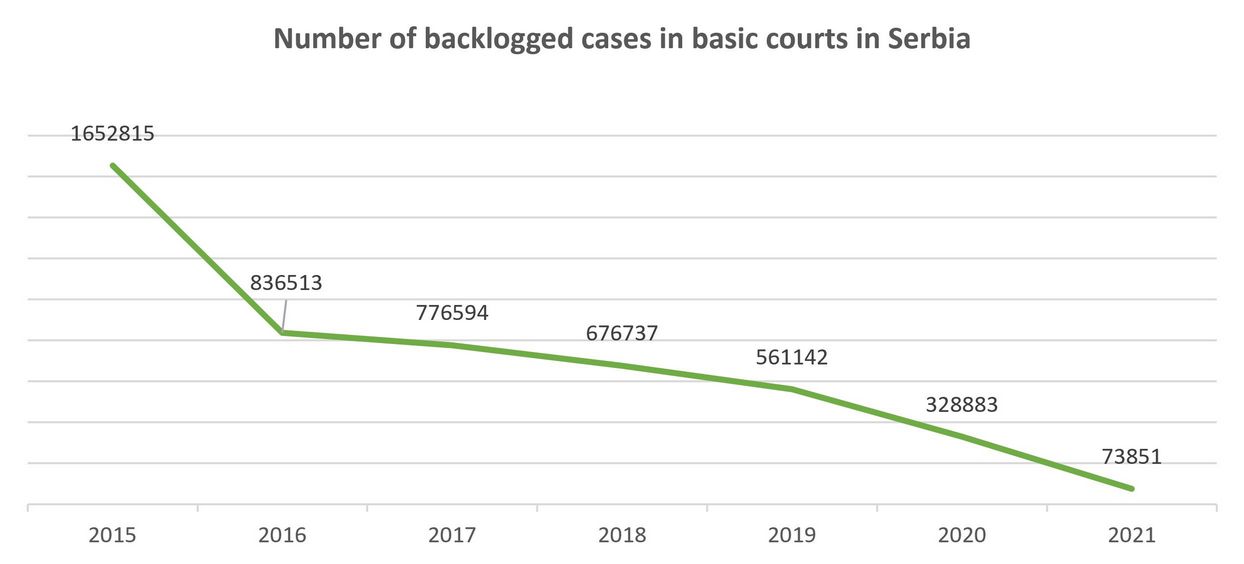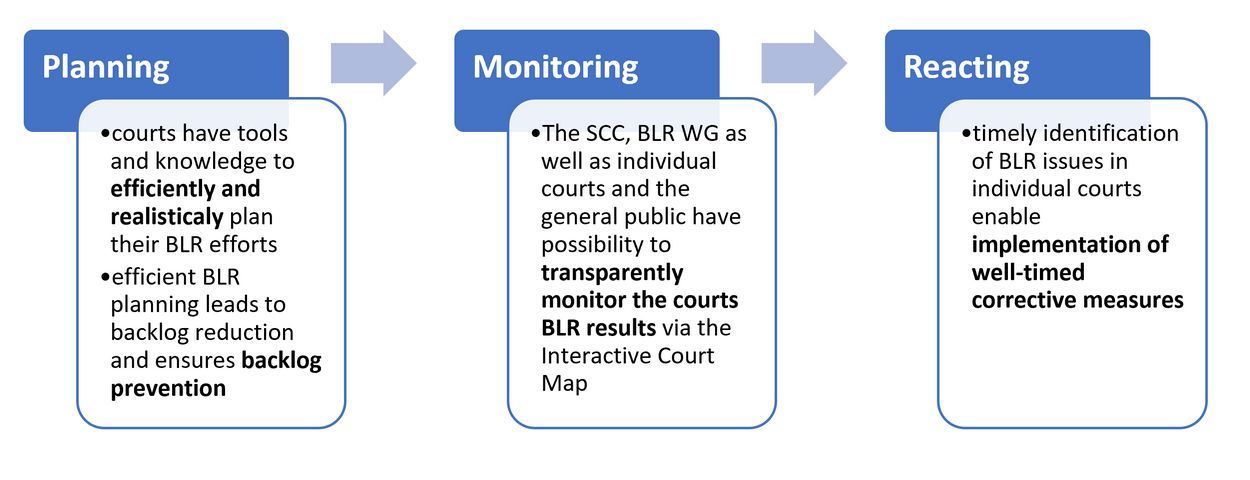As of March 2021, the scope of the EU funded project “EU for Serbia – Support to the High Judicial Council” has been expanded to include support to the Supreme Court of Cassation and the individual courts in regard to implementation of the Unified Backlog Reduction Program for 2021 – 2025, and further decrease of backlogged cases in Serbian courts. This activity was supported by the 4DC expert team, as of March 2021 until March 2022. This assignment represents a direct continuation of previous activities conducted by 4DC, in regard to backlog reduction and backlog prevention.
Since 2016, 4 Digits Consulting has been part of the EU initiative to support the Serbian judiciary in tackling its backlog issue, in particular backlog in basic court’s enforcement cases. This support has been provided through the projects “Judicial Efficiency”, “EU for Serbia – Support to the Supreme Court of Cassation”, and finally “EU for Serbia – Support to the High Judicial Council”, funded by the Delegation to the European Union in Serbia. During this time, 4DC has supported the Serbian judiciary to reduce its current backlog, as well as to implement a coherent and comprehensive system ensuring efficient backlog management and backlog prevention.
The 4DC expert team has implemented a series of activities aimed at providing the Serbian judiciary with proper tools and knowledge to efficiently set its backlog reduction goals, monitor the achieved results and consequently timely identify possible issues and bottlenecks in order to implement well-timed corrective measures. These activities, amongst others, include:
- Introduction of new reports in the court’s case management system, enabling the courts to anticipate their upcoming backlog;
- Change in the methodology for preparation of individual court’s annual Backlog Reduction Programs, ensuring standardized and unified content of these Programs and cohesive approach of individual courts in preparation of these Programs;
- Change in individual court’s approach to defining and setting their annual backlog reduction goals, enabling the courts to set objective and achievable goals;
- Introduction of online tool for preparation and submission of individual court’s annual BLR Programs, allowing for easier and more automated preparation process;
- Development and implementation of the Interactive Court Map publicly accessible through the website of the Supreme Court of Cassation, enabling the individual courts, the management authorities as well as the general public to easily, free of charge and without restrictions track and monitor the individual courts BLR progress, on monthly basis;
- Support to the judicial institutions (Ministry of Justice, Supreme Court of Cassation and individual courts) in implementation of legal changes aimed at addressing the backlog in enforcement cases;
- Provision of training to judges and court staff through workshops, seminars and on-the-job support for all implemented changes and activities, including provision of publicly accessible video tutorials ensuring sustainability of the implemented solutions.

As a result of the implemented activities and the provided support to backlog reduction, the Serbian judiciary has achieved significant backlog reduction results, reducing the number of backlogged cases in basic courts for over 95% in the last 6 years.


